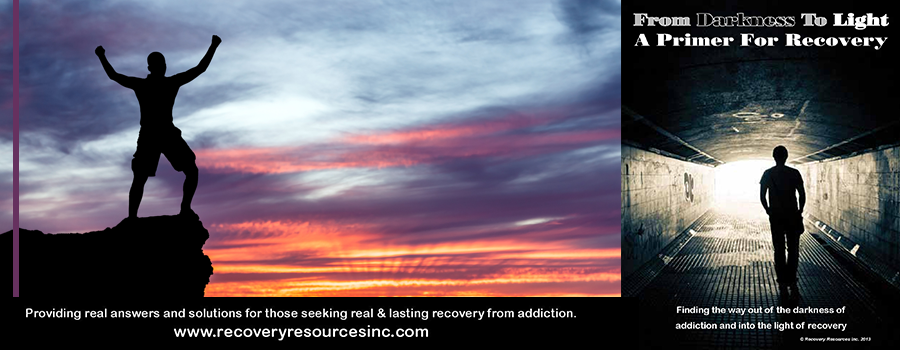Article Contributed By: Richard Anderson – Recovering from addiction for over 28 years, Founder of Recovery Resources Inc.
I have often heard it said that addicts did not know how to feel their feelings when they were using. This is a message given routinely to addicts new to recovery. Addicts tend to buy into this message for a number of reasons:
- This is explained to them by a sympathetic counselor
- Addicts like to think of themselves as a special sick case needing special handling and attention
- Everyone around them seems to agree with this assessment, etc.
Sometimes things are said so often they are simply taken for granted to be true.
Addicts Are Very Much Capable of Hurting
The idea that addicts were or are incapable of feeling their feelings is nonsense. I would file it in the category of platitudinous rhetoric. Items in this category sound nice and might make us feel warm and fuzzy, but simply have absolutely no basis in fact and fall apart under careful scrutiny.
Let’s take a look at what is underneath this concept.
Trying to Stop the Pain and Feelings
The idea that an addict ingesting a drug like Heroin is anesthetizing themselves makes sense. As a nurse I routinely give patients Morphine and other powerful narcotics. These patients are in a great deal of physical pain and the medication eases their suffering, reduces Cortisol levels, and promotes physical healing.
These same patients after receiving pain medication are able to continue experiencing their emotions.
When I address clients in facilities we explore this concept together. I ask them if they ever experienced any of the following while using:
- Shame
- guilt
- remorse
- self-pity
- isolation
- degradation
- hopelessness, or
- despondency
I have yet to find a client that tells me they never experienced these feelings while using. How can an addict “hit bottom” and experience desperation enough to seek help if they didn’t feel their feelings?
“Not Feeling” Is Not a Problem of Addiction
 Let’s be clear. Unless they are sociopathic, addicts feel their feelings. True enough we didn’t like our feelings much. It is also true that we used in response to our feelings. Nonetheless we felt our feelings whether we liked it or not.
Let’s be clear. Unless they are sociopathic, addicts feel their feelings. True enough we didn’t like our feelings much. It is also true that we used in response to our feelings. Nonetheless we felt our feelings whether we liked it or not.
Using really didn’t take our feelings away. At most we experienced a fleeting moment of ease and comfort while under the influence and tried in an obsessive way to recapture those feelings of ease and comfort by using over and over again.
If we can agree that addicts probably did experience their emotions while using we are beginning to work on a solution from a standpoint of truth and embracing reality. We are no longer offering the addict an excuse to continue their using because they are convinced that they are a special sick case.
The Role of Guilt
For addicts, one of the most difficult feelings to reconcile is guilt. Addicts in general are insecure and suffer from chronic self-esteem issues. This isn’t helped by the people still stinging from the misdeeds of addicts reminding them of the horrible things that they have done.
Occasionally this is meant to be a disincentive to the addict to continue their using. Often it is used as a bludgeon by those who have been wronged to fortify a position of control as the dispenser of forgiveness or to simply exert control.
Not to say that people don’t have a right to feel wronged and to express their feelings to the addict, but to continuously do so does nothing to help the addict find recovery, in fact it may have the opposite result.
The Basic Text of Narcotics Anonymouse
 So, when I am addressing addicts I bear in mind what they have done, what they have been through and what they have felt. I know because I have had the same experiences. I talk to them about the Basic Text of Narcotics Anonymous.
So, when I am addressing addicts I bear in mind what they have done, what they have been through and what they have felt. I know because I have had the same experiences. I talk to them about the Basic Text of Narcotics Anonymous.
To legitimize this particular book I point out that it was written and produced by a consortium of addicts asking themselves if the concepts within the book were true for all or most addicts. If it was found to be so it made its way into the book. Therefore we can rely on this book for an intimate look into the nature of the addict and recovery.
One of the things the basic text talks about is the concept of being powerless over our addiction. It says that powerlessness “means using against our will”. This is a profound statement that I relate to on a visceral level.
It is absolutely descriptive of my experience and the experience of the hundreds of addicts that helped to produce the Basic Text and the millions of people that have relied on the Basic Text for decades.
Addiction Doesn’t Happen in a Vacuum
Let’s take this a step further. If powerlessness means using against our will can it not also mean acting against our will? Using doesn’t occur in a vacuum. There are things we must do in order to continue our using.
First of all, we must push everyone away that might interfere with our using. Various mechanisms are used to this end but especially anger, hostility and even violence.
What about when our resources run out, we find ourselves broke and unable to buy more drugs to “recapture the ease and comfort we once knew” (while using)? We were capable of almost anything. We may have sold ourselves, stolen from our family or friends or employers, abandoned our families, etc.
Being “powerless” to control our using we were, therefore, powerless to control the things that we did in order to procure more.
No Excuses, Just Showing the Truth
 I am not trying, nor have I ever tried, to excuse the behavior of the addict while using or relieve them of any responsibility for making proper amends. What I am doing is pointing out that which is so seldom pointed out.
I am not trying, nor have I ever tried, to excuse the behavior of the addict while using or relieve them of any responsibility for making proper amends. What I am doing is pointing out that which is so seldom pointed out.
That is that given a choice, 99% of addicts would not choose to debase themselves by selling their bodies for money. Given a choice most addicts would not have done most of the things that they did.
Despair Is the Conflict Between Conscience and Action
I often ask the clients that I address to ask themselves if they, now that they are clean, would repeat those same behaviors. The answer is an obvious “no”. I ask them if, even when they were using and doing those behaviors for which they now carry so much shame, they didn’t feel a small voice inside of them saying “no, don’t do this”.
There is general agreement on this. We have a conscience. If we didn’t we wouldn’t have reached a point of emotional and spiritual despair that motivated us to seek help.
Addressing the Real Issues of Addiction
To help the addict to understand the real nature of addiction and recovery is essential. We have to address real issues in a real way. Our “owning” of our addiction must be authentic and based on truth; thereafter we can embrace recovery with the same principles.
For more information on this and other vital topics please refer to the recovery workbook “From Darkness to Light: A Primer for Recovery” available at the website www.recoveryresourcesinc.com
Community Discussion – Share your thoughts here!
What is your experience with releasing the guilt that comes along with addiction?

